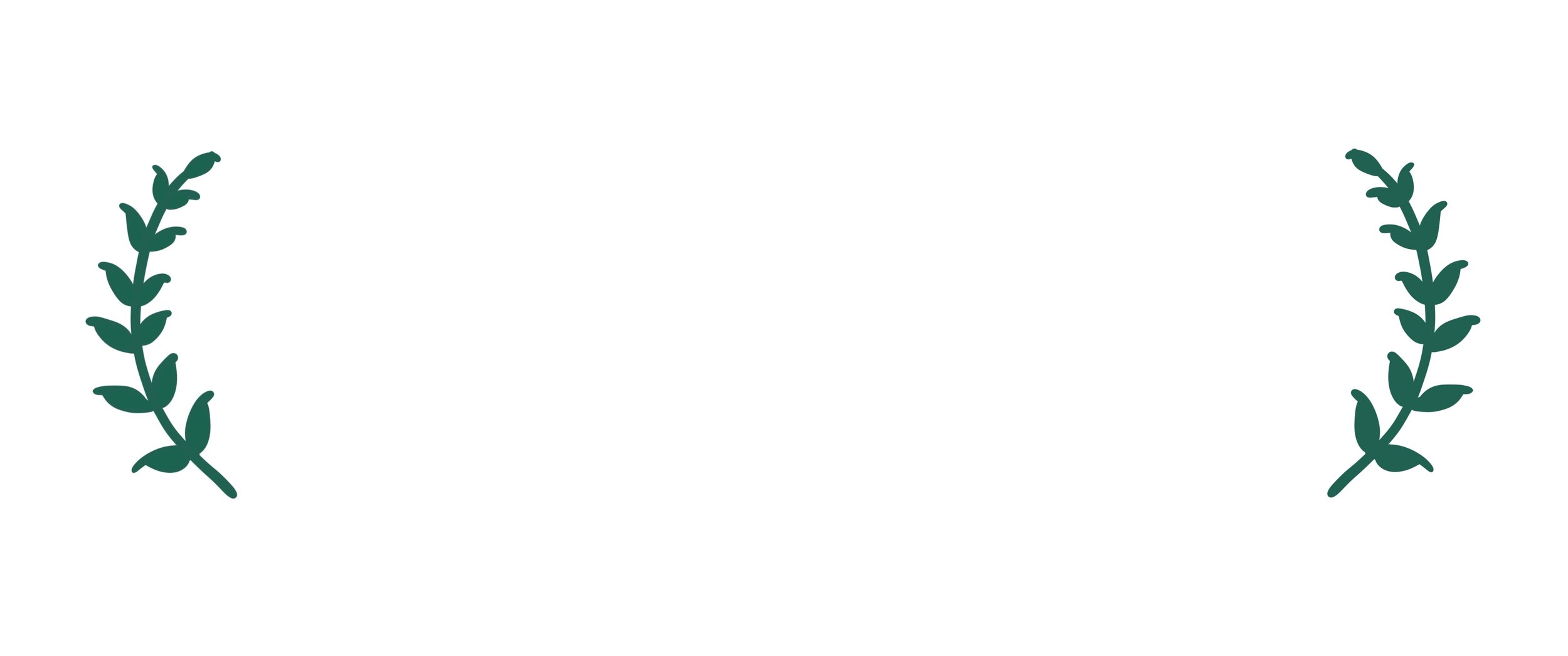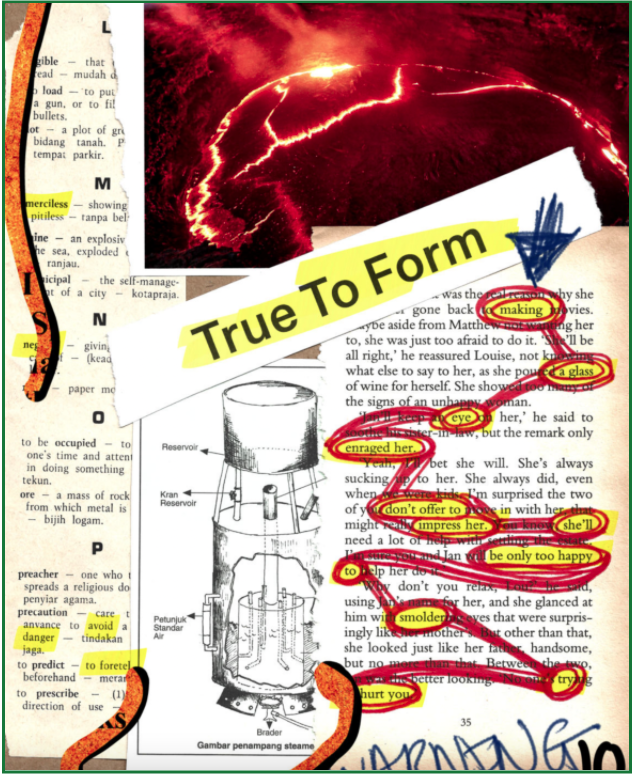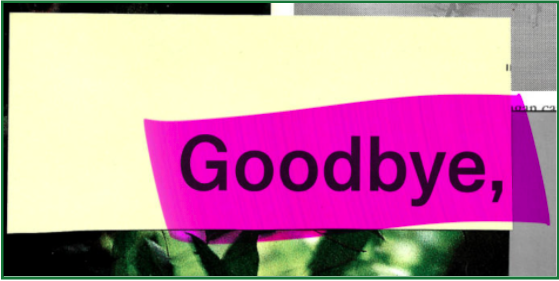
Review: drifting bottles by Arden Hunter
by Fox Auslander
dirfting bottles by Arden Hunter
Gutslut Press, 2022
drifting bottles is available now from Gutslut Press ($5-17.50 USD)
“two people. / love / for one last / time / ‘Look Really / admire all the details. / ‘Keep an eye on things / like the / dark / and the way / it / hands / down / interest.”
So begins Arden Hunter’s drifting bottles (Gutslut Press, 2022), an experimental artifact of fictional lost love. More scrapbook than traditional chapbook, drifting bottles consists of 27 colorful collages, centered around a series of erasure poems. Hunter pulls their source text from a “bookworm-ravaged copy of Danielle Steel’s Special Delivery,” which explores a romantic relationship between a rich bachelor and a retired Hollywood starlet. In contrast, Hunter’s condensed, repurposed narrative follows a nameless man and woman as their love returns to dust.
Though erasure poems serve as the focal point of the manuscript, their image-rich borders provide additional insight into its context and creation. Scrawled notes line the margins and intrude the main text with impunity, interspersed with vocabulary lists, anatomical diagrams, and photographs of natural phenomena. The diversity of material strewn across each page establishes drifting bottles as an archivist’s pet project, calling their perspectival sway into implicit dispute. To whom does the lovers’ story belong, and how should readers best extract their own interpretations?
In February, Hunter sat down with Mordecai Martin to discuss these questions (alongside Hunter’s other forthcoming work). Hunter tells Martin, “I want [the reader] to see my work and first experience a moment of confusion [...] I think that moment of encouraging them to get past that ‘other’ feeling can create more engagement with the message I’m trying to convey.” To this end, Hunter rewards curious readers with ample symbolic ambiguity, lending their poetry well to repeated (re)exploration. However, Hunter acknowledges, “Some people do not want to be challenged; they want to read the poem or see the picture and think, ‘Nice,’ and go about their day.”
My own propensity for slacking aside, I struggled to reconcile drifting bottles with Hunter’s stated intent. On the one hand, the archivist seems unable to trust readers’ deductive capabilities. Their dark blue scrawl covets attention in redundant ways: “IMPORTANT INFO,” shouts one page; “Think about the choices she makes,” instructs another. On the other, I found myself straining to parse the archivist’s messages, even beyond moments of purposeful obfuscation. Despite multiple rereads, I never unearthed deeper meaning behind their directive to “Feed the animals.”
However, the archivist’s unclear aims position them as a character in their own right, infusing the narrative with an additional air of authenticity. From asserting their preference for breakfast cereal to urging the neutral reader to uncover the ex-boyfriend’s wrongdoings, the archivist acts as an opinionated interface through which readers can converse with the text. In this way, their notes additionally serve as a model for Hunter’s ideal reader, prompting us to line the margins with our own evolving observations. Within drifting bottles, readers are encouraged to make meaning as authoritatively as the archivist — the decision is left up to us to pursue it.
If given adequate time and attention, drifting bottles has the potential to be an immensely satisfying read. The challenge could lie in cultivating an audience driven to unearth its many secrets.
Fox Auslander is a nonbinary poet, editor, and B-tier advice columnist. You can find them, but should you?


